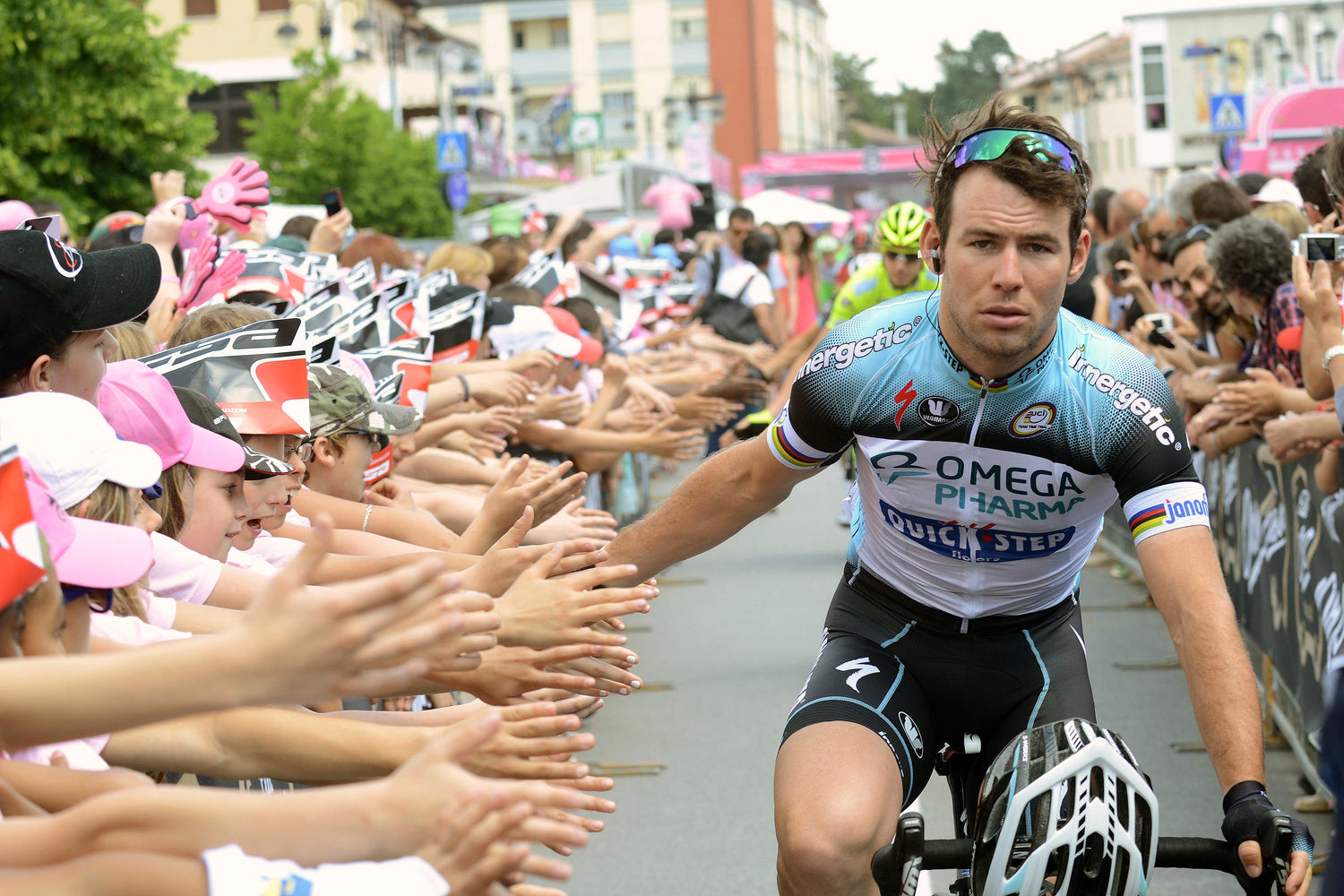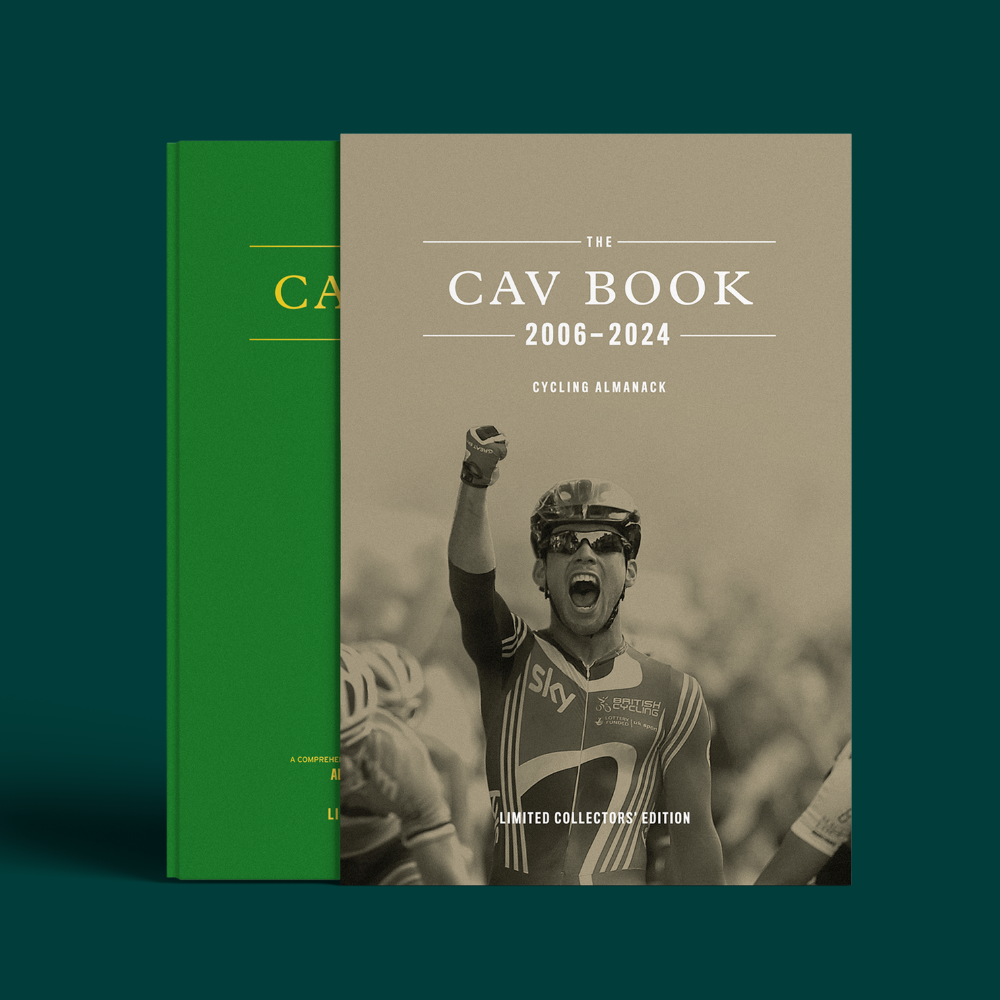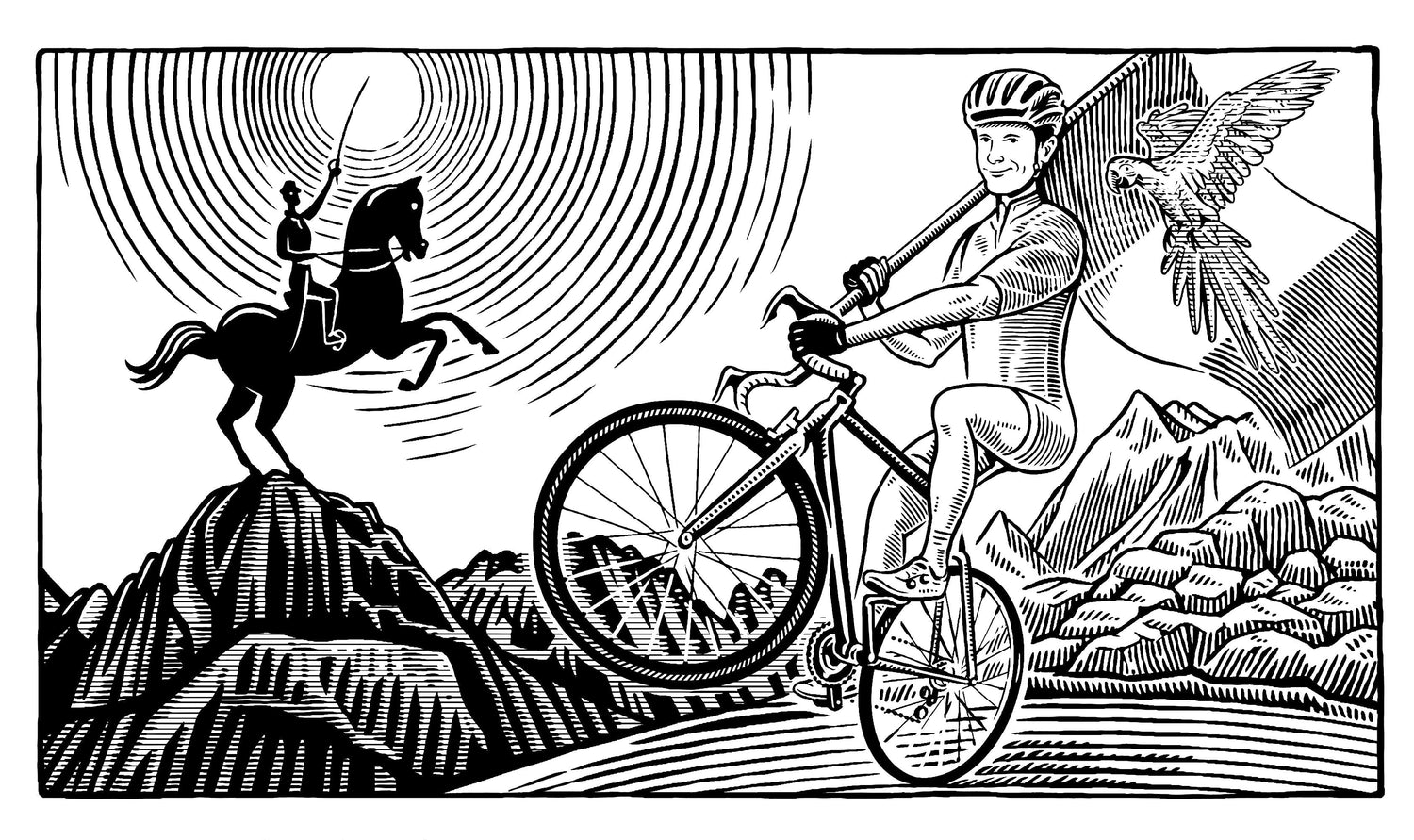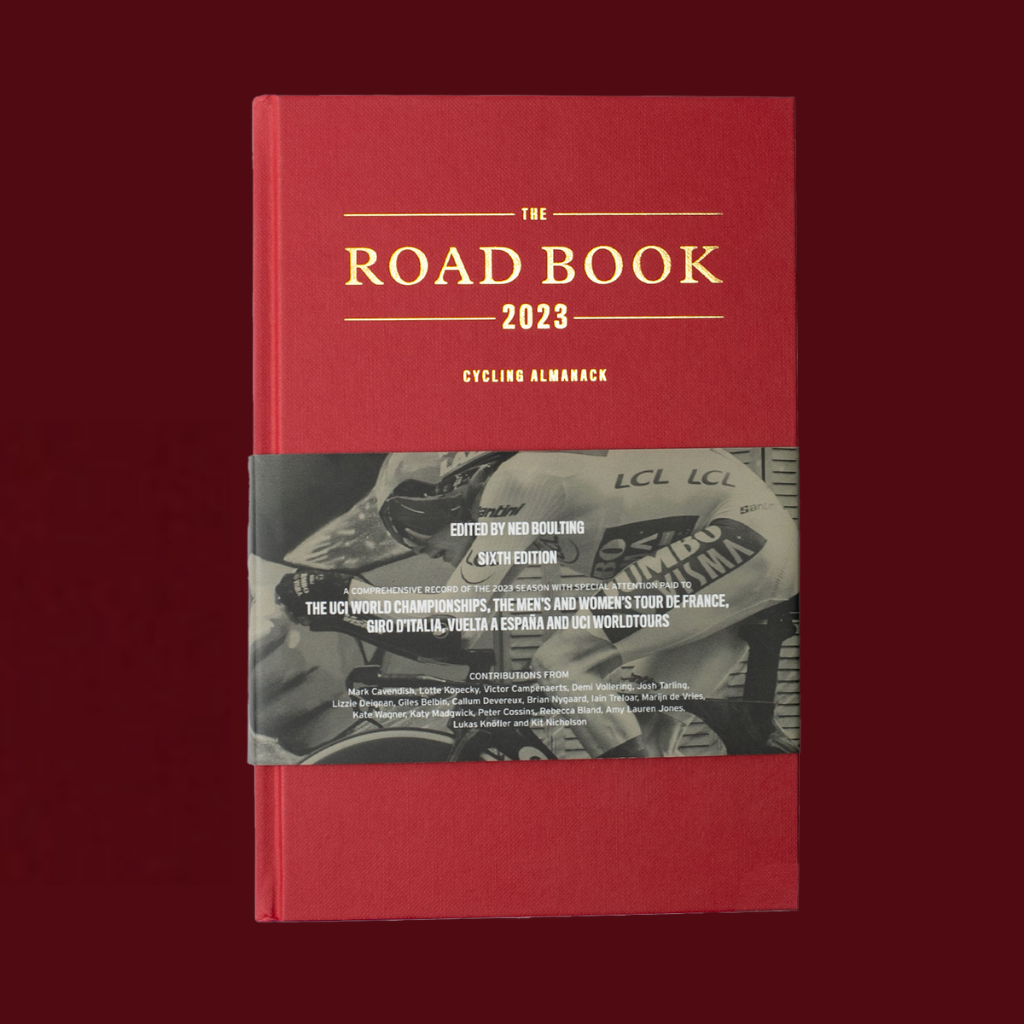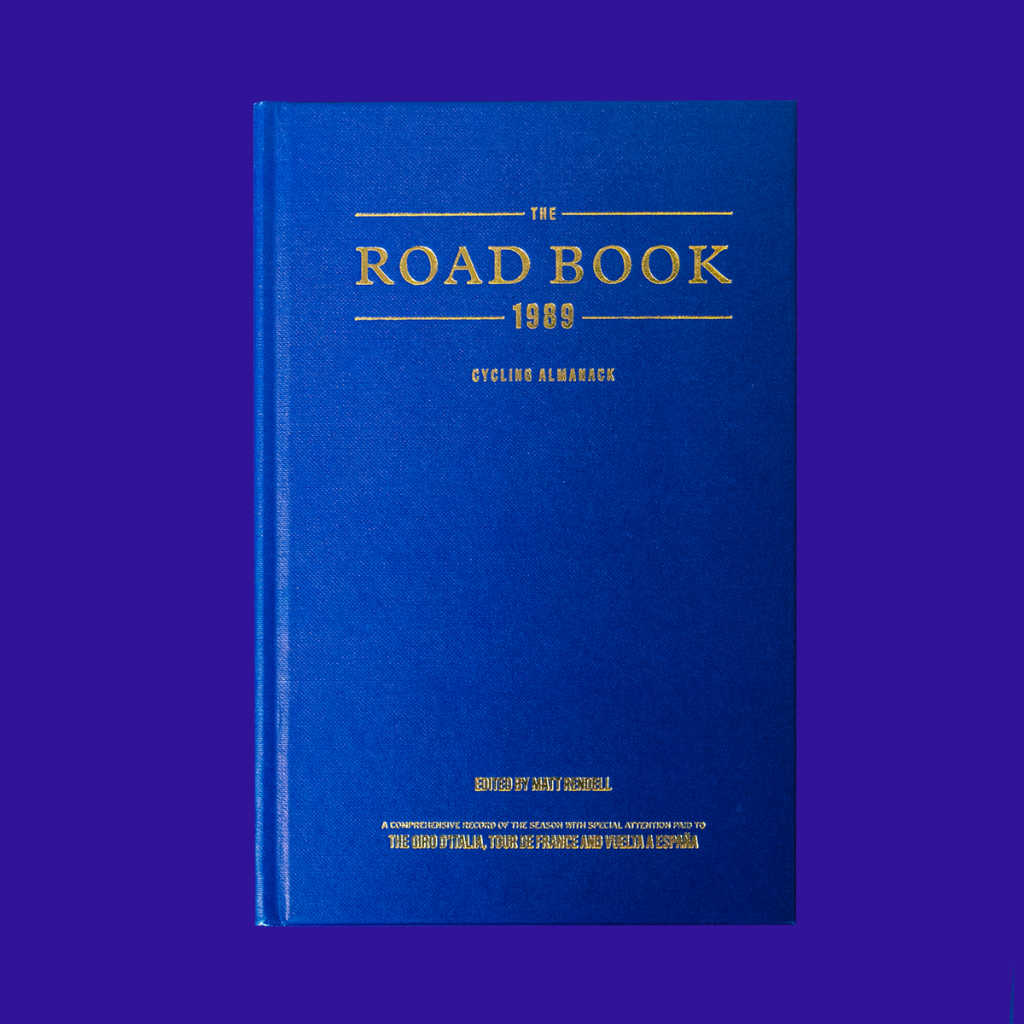The Road Book are delighted to provide British Cycling Readers with an exclusive essay from The Road Book 2020. Purchase your copy of The Road Book 2020 before 20th December 10pm to have guaranteed delivery before Christmas.
Editor’s note
Nic Dlamini, 25, rides for NTT. He specialises in hard races with plenty of short sharp hills to attack. He has ridden two editions of the Vuelta, and in 2018 he won the King of the Mountains competition at the Tour Down Under. He is the only black South African to be racing overseas.
In late December 2019, he was out for a training ride on a regular route on the Cape Peninsular. During the ride he was hauled off his bike and assaulted by a park ranger who broke his left arm in a deliberately violent assault that was filmed by a passing cyclist. That assault is still subject to legal proceedings. Dlamini now has a metal plate in his upper arm and a scar that measures 32 stitches in length.
He currently triangulates his life between his new family home in the predominantly white Cape Town suburb of Muizenberg, Girona in Spain and the UK, where he spent lockdown. But he still visits his old friends with whom he grew up in the troubled township of Capricorn Park.
For The Road Book 2020, he has shared his childhood memories, as well as retelling the story that made international headlines just as the year was getting underway.
——
As an athlete you always know you’ll break your own bones. But I never thought someone else would break mine. It’s a scar that means a lot to me. It’s part of the story. It’s part of me. I have memories. But they don’t break me down.
A lot of people suggested that I go for counselling so that I could get my mind back and avoid having flashbacks at some point. Maybe if it had happened to someone else, they might have needed counselling. But since I grew up in a township, I didn’t feel like I needed it. I’ve never had any flashbacks, not once. My background helped to make me strong. Obviously I broke my arm, but I’ve seen worse.
I grew up in Capricorn Park. If you grow up in a township, you get exposed to a lot of stuff. It’s very different to growing up in a white household. We saw everything, all the time. I’ve seen people being killed. I’ve seen people being driven over by a train. I’ve seen crazy things. At any given time, you’ll see people fighting. Then one of them will take out a knife and stab the other one. Or maybe they’ll take out a gun and start shooting the other one. These are the things we grew up seeing.
Normally if you see someone take out a knife, or a gun, you start running. But in South Africa you don’t run. When that happens, we don’t run away. We actually want to see what the other one is going to do. That’s what it’s like, that’s what you get exposed to. You get used to it. You want to see what’s going to happen. It becomes a normal thing. You’ll be walking along and you’ll see someone lying there who’s just been shot a minute or two ago and people are just walking by, minding their own business.
It’s madness living in a township. It is dirty. The streets are dirty, and full. The houses were built by the government – really small, really basic. They used the cheapest materials. When it started to rain, the doors would swell and they wouldn’t close. Then they’d start falling apart. I remember when our door was broken and, in order to get in or out, we’d have to remove the whole door and put it to one side to go out, then we’d put it back again. The roof would leak when it rained, and the blankets would get wet. We’d have to put buckets underneath where the holes were.
In winter it would be a disaster, it would be really, really cold. Some people had a paraffin heater and they’d leave it on the whole day. Other people couldn’t afford heaters, and they’d make fires outside. Then, once the fire settled down, they’d bring the coals in.
We had one bedroom, made of bricks, and asbestos on top. One of us would sleep on the couch, one on the floor and my sister would share the bed with my mum.
My mum has always done domestic work. She’s done it for a very long time and worked for a lot of people. She’d have to wake up very early to leave the house by five o’clock. In the winter it was a nightmare. She’d have to walk to the taxi rank and it was very worrying, with the township being so dangerous. So sometimes I’d walk with her to make sure she got on to the taxi. We’d see my father sometimes, but we never stayed with him or spent much time with him. Really, he was just not there. My mum did everything when we were young.
A summer’s day in South Africa is noisy. People start spring cleaning, playing loud music, some people will be drinking. People love alcohol in South Africa. I think it helps them to forget about some of the things they are going through. It’s loud. People are cooking; the guys from Malawi might be cooking fish or rice, frying it so it becomes really smelly. There’s a lot of sand in Cape Town. It stinks too, it gets wet and kind of mouldy. That’s why people do so much cleaning.
Some days when it rained and the roof would leak, the material inside would start to smell like mould. You have to open the windows and the doors. To get into some places you have to duck under washing. You can imagine, maybe six people living on a small piece of land. Everyone’s doing washing. You’re always having to duck under washing wherever you’re going. But I think the people have found a happiness in that. They have accepted it. I did, too. I think that if you grow up in an environment like that, you basically adapt to it and you’re able to find a lot of happiness in it.
Growing up, I was really naughty, to be honest. You know, if you grow up in a township that’s well known for drugs and all the crazy stuff, the gangsters, it’s so easy to be influenced by those things. My friends and I would go hunting. We’d kill birds – guinea fowl, goose, any sort of birds. I’ve eaten every sort. We made traps using crates and ropes. Sometimes we’d drive a bird towards the fence. Once it was close to the fence it wouldn’t be able to fly. Then we’d come from every side and catch it. We’d make small houses in the bush. We’d come back from school and go and sit in our small house. Then we started smoking. But I wasn’t really into it.
I remember one day coming back from school and thinking, ‘I don’t know if I’m really enjoying what we’re doing.’ I must have been about 11 when I realised I didn’t want to do this. So I started staying at home. I’d come back from school and basically just stay at home. I’d only see my friends if my mum sent me out to go and buy something from the shop. That was the only time I saw them then, playing in the street, and they’d always tease me. ‘You’re a homeboy now!’ I’d sit with them for five minutes and then go back home.
My earliest memory is having to make this transition.
——
My twin sister and I were very sporty. The primary school and high school we went to were very reliant on us when it came to sport. The school always counted on us when it came to athletics and getting maximum points. We were very valuable. My mum didn’t have to go and find a high school for us. There were already a lot of schools that had spotted us and decided that when we went to high school they wanted to take us.
We were good at everything. My sister was more talented than me. She’s loud and very active. I was more laid-back. She would win races without even training at all. I was a good middle-distance runner, from 800m to 5,000m. We’d race at the weekends and win back to back. For us, it was a really good feeling. We got along really well, too. Sometimes we’d train together. We both knew we were both good, but she started to focus more on her academics, whereas I just focused on sport and my studies took a dip when I started to get into cycling. It took up a lot of my time.
I knew nothing about the Tour de France, Paris–Roubaix or the Giro. I’d never heard of them. We loved riding bikes. Every kid in the township wanted to ride a bike, but not everybody could afford one. So, if one friend had a bike there’d be ten guys taking turns to ride it – riding down the road, coming back and then giving it to someone else to take their turn. A friend of mine used to cycle. We’d share stories. He’d tell me how far he’d gone on it and what he’d seen. He told me he’d seen baboons and Chapman’s Peak. And I thought that sounded nice. It’d be nice to see that.
Then there was Geoff who had a small workshop in Capricorn fixing bikes, called Ben Bicycles. He’d been a good cyclist back then but maybe didn’t have the opportunities. When he was younger, cycling was still considered a white sport. We’d pay him 100RD fee for a year and he’d provide a bike and kit. That’s when I started cycling. I was 12 then. He gave me a steel bike with downtube shifter gears. That was my first bike.
At the weekends we’d ride as a group. We’d ride the famous route to Simonstown. It’s only an hour long, and then we’d come back. We’d see all the white guys with their carbon-fibre bikes and deep section rims.
I didn’t know much about changing gears. The bikes we had were like fixed-gear mountain bikes that you’d buy cheap at a Chinese shop. So the first day I had my bike and we started riding, everyone started going past me, and I was wondering why everyone was going fast. I was just stuck in this one gear. I got sent back. I’d only done about 30 minutes with them before I had to turn back. It was quite disappointing. But then I learned about gears. ‘Ah, OK! You have to shift gear and it gets harder!’
Geoff had an aluminium Scott bike. It was the nicest bike I’d ever seen because I’d never been outside of Capricorn to see other bikes, better bikes, carbon bikes. I hadn’t seen that. So I thought Geoff had the nicest bike in the whole world. He did a great job for me, giving me a bike and giving me a start. Without him, I wouldn’t have been a cyclist.
Mum earned very little as a domestic worker. She earned enough to feed the family, but that was about it. Food and nothing else. Sometimes we didn’t even have food. You’d wake up so hungry in the morning, and then my mum would go to work. We wouldn’t be able to wait until she came back from work. Sometimes she’d come back with leftover food from whoever she was working for. We’d know that it was almost four o’clock and that she might be on her way back. You could see the taxis coming into Capricorn Park from where we lived. We stood there and watched them coming in. We couldn’t wait for her to get back. When we could see her getting off, we’d start running to her, looking to see if she had some plastic bags with her that meant she had food. We’d take the bags home, check out what was inside and start eating. But some days there’d be nothing. Some days we’d not have eaten the night before either.
Luckily, at school they had a feeding scheme. So we’d leave home a little early to get to the feeding scheme and eat some porridge before school. But in the school holidays, there was no food. I always went training though. I’d ride and of course I’d start to get the hunger knock. So I’d stop and eat these red num-num fruits from the bush just to have something in my stomach. Or figs. I would start eating figs, and then I could ride back.
We’d have to walk 5km get to school. We got used to it. The walk to school was long enough for me to imagine things while I walked. As I walked, I started to imagine being a professional. I’d wake up in the morning, have tea, breakfast, and then get ready to go and ride at eight o’clock in the morning. It felt like I was painting my own life because a few years later that’s basically what happened.
I started training hard, especially during school holidays. We’d go out with the team in the mornings and then come back. But then I’d get bored and I’d think, ‘Maybe I can go out again?’
There were some days I’d have to start training at five o’clock in the morning, or perhaps leave very early to get to a race. I’d always have to ride to the races in the dark. That’s the most dangerous time: 4 or 5 am. That’s when the guys do all the robbing and breaking into houses, in the early hours of the morning. I’d go out of the house and think to myself, ‘This is very dangerous. If anything’s going to happen, it’ll be now.’
If you went to my house back then, you’d see posters all over the wall – pictures of local riders and some of Chris Froome. I didn’t know much about any of the international riders back then, but every time I saw a picture of a cyclist in a magazine, I’d cut it out and take it home.
One day Paris–Roubaix was on and my friend had a TV that was showing it. I rode over to his house and we watched the race. Cancellara and Tom Boonen were still racing at that time. It was so good to watch them. I looked at all the kit and the equipment and saw that it was really top level and thought I’d love to be a professional one day.
If the coach saw good progress, you got a better bike. So I started getting aluminium bikes and I was very happy. At 14 I started racing competitively. I won the summer league. When I was 17 I started thinking about what I really wanted to do – and I thought of cycling. I started doing a lot of racing. And when I was 18 I started winning races.
No one in my family had ever owned a car. Sometimes we’d take a taxi or go in a friend’s car. So one of my wishes was that one day I could have a car so that we could go to the beach with the whole family and just have fun. That was also painting a picture because we’ve done all those things as well.
For me, it was just dreaming. Dreaming a life.
——
In 2015 when I was riding for the MTN feeder team, we had a team house in Potchefstroom. It was very mixed. There were white guys, black guys from South Africa, Eritreans, Rwandans all staying in one house. We started getting used to each other and learning about each other. We started learning about each other’s cultures as well. It was strange for the first couple of months, because we all cooked for ourselves. The Eritreans were cooking their things, and I started wondering, ‘Jeez, is this what these guys eat?’ They’d come to South Africa with these hot spices and they’d boil eggs and cook chicken with them and eat them with these small, very sour pancakes. The food was so hot! The Rwandans always cooked pap
We became like a family. Now, when I’m away at races and there are other Africans there, there is a special feeling. When I look at the list of riders, I look for the African guys and when I see their names I think, ‘Awesome! There is another black guy. I feel good now, I have someone to talk to.’ You can see it in the races. When the racing is relaxed, we all gather and we catch up because we feel more connected than with the white guys. We ride together and chat. But when the racing starts again and it’s crunch time, then we all do our own things that we’re supposed to do within the team.
Most of the time I go to a race and I’m the only black guy on the team. But there have been times when I have been the only black guy in the whole race. The first year I raced the Vuelta a Burgos, I was the only black rider. But it felt normal, I don’t know why. I wasn’t too intimidated. I think it also depends who you are.
In WorldTour races, you can’t just ride at the front. You’ve got to have a leader, or people have got to know who you are for you to ride there, otherwise they’ll push you back. Now I’ve got more comfortable riding in the front. For example, if you approach a corner on the inside, they’d look at you and work out who you are. They’ll look and if they don’t like you, they’ll block you into the corner and you have to go hard on the brakes.
It is true, though, that there has been a lot of incidents of racism in the peloton. For example, there was an incident between Gianni Moscon and Kévin Reza. In fact, I think it happens most of the time. It may be happening less often but you will still find that one person who is very racist. It’s like when you are out on the road and most drivers are very polite, but every now and again you find that one driver who’s very impatient. It’s basically the same. Most of the guys are very good, but every now and again you’ll find the one guy who’s really racist. I’ve seen it happening to the African guys. I’ve seen it happen to Natnael Berhane.
We were racing up a climb and it was crunch time. Natnael was about 20 metres ahead of me, and there was this one rider moving up. He came alongside Natnael and just pushed him straight off the road. I looked at that and I thought, ‘You can’t do that.’ But Natnael didn’t mind it. I think it’s happened so many times to him that he doesn’t even take it into account any more. But I saw what it was like. It wasn’t cool. I think the guy just looked at him and thought, ‘You’re a black guy. You’re not supposed to be here anyway. I need to go past, so I’m just going to push you.’ Those small things.
Then you get guys like Tsgabu Grmay. He stands tall. If a guy does something like that to him, he goes crazy as well. I think it depends on who it happens to. If that were to happen to me, I wouldn’t go crazy about it but I would exchange words with that person in a polite way. I’d make the person understand that it wasn’t right what they did. But perhaps that goes back to the respect I get within the peloton.
For some reason, I have gained a lot of respect from the peloton. A lot of guys are starting to recognise me, which makes me feel welcome.
——
It was just a normal training day. I was going out to do my efforts. I have this climb about 5 or 6km from my house called Ou Kaapse Weg and it’s slightly longer than the other climbs, so I always go there. It’s about 10 or 11 minutes to the top. But there is an extended section into a nature reserve, through a gate. So, if you want a 15-minute effort, you normally turn there and carry on for another three or four minutes.
I go up there all the time. In the past I’ve been up there with Ben Swift, with Bernie Eisel and with another, local friend of mine. You have to go past the gate, ride to the top and turn around. That day I was on my own. I passed the gate and went to the top. As I was coming down, there was a guy in the middle of the road, and some other guys at the side. He was a ranger. I saw him but I had no idea what he was doing there. Then I see that he’s stopping me, so I braked. I was going too fast to stop where he was standing, so I had to go past. But as I came past him, he grabbed my arm. He was a big guy, and off I went. I crashed and landed on my back, and I couldn’t breathe for a second. I thought, ‘This guy must be crazy.’
I stood up and yelled, ‘What are you doing?’
Then he started to get angry. ‘Do you have a pass?’
‘We never need a pass to come up here!’
‘Do you have a pass?’
‘We train with my friends here all the time. Not once have we been asked for a pass.’ I was still angry. ‘Do you understand that you can never grab someone’s arm at that speed? I’m a professional cyclist.’
Then I told him I was going to report him, and he said, ‘Don’t make me hit you!’
As I reached for my phone, he grabbed me and pushed me against the van. It was a hard push. He pulled me round and then banged me against the car for a second time. Then he started pulling my arm. He was breaking my arm. He broke it. It completely snapped. Then they chucked me into the back of the van. I was in such pain.
He wouldn’t have done it if I had been white. But also I think he thought I was foreign. Even though most racism is between black and white, it’s also between black South Africans and foreigners from Zimbabwe and Malawi. In some ways that’s worse. I’m dark. It’s not easy for people to tell that I am actually Xhosa. The fact that I spoke English to him is one of the reasons he probably thought, ‘This guy must be a foreigner.’ I’m pretty sure it wouldn’t have come off like that if I’d spoken Xhosa with him. I worked it out. I looked at him and I knew where he was from. I could tell which tribe he was from.
A bully likes challenges. And the people he works with never challenge him. They never question him. Whatever he says, gets done how he wants it. People like power. As soon as they are given power they go overboard. They know no one is going to question them. So, whatever they do, people will pretend not to have seen it. Especially those close to them. It’s like with the cops in America. The cops who were there pretended nothing had happened.
The reason these things will never stop is because of people trying to cover it up and to paint it as nice as possible. I’m pretty sure they know what they did was wrong.
Just to be heard was very important to me. It was very nice to see how everyone worked together to spread the Black Lives Matter message and make sure it was heard across the world. It is important to everyone. It does not matter if you are black or white. Whoever gets power must never think they are better than anyone else.
I was born in 1995. Mandela’s election was in ’94. My whole life has been lived in freedom



